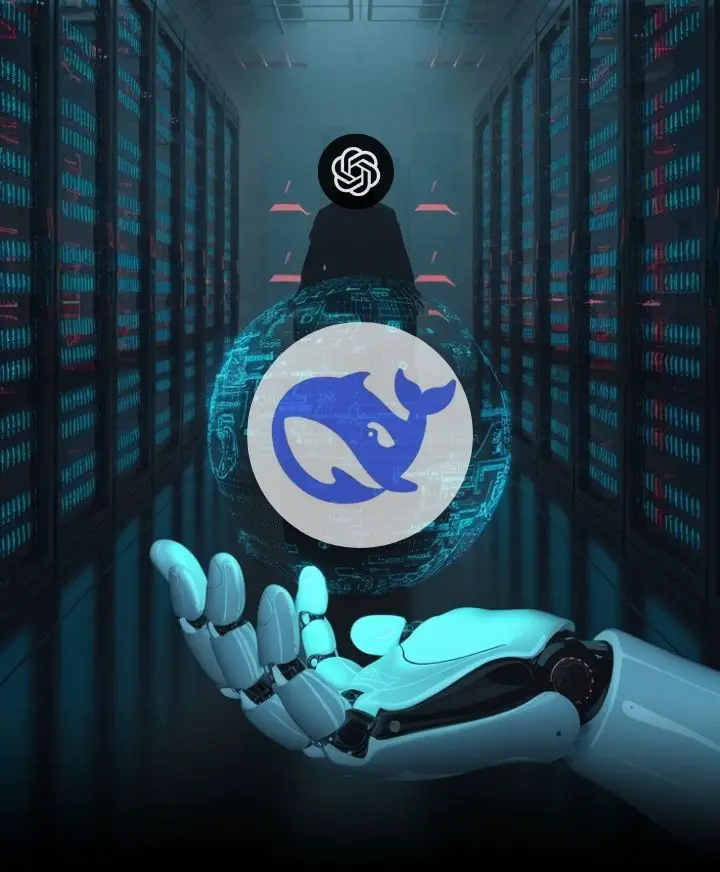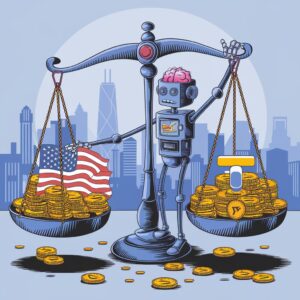OpenAI Raises Concerns Over DeepSeek’s ‘Questionable’ Data Use
In the fast-paced world of artificial intelligence (AI), data is the lifeblood that fuels innovation. However, as competition intensifies, concerns are emerging regarding the ethical use of data. OpenAI, the company behind the revolutionary ChatGPT, has raised alarms over DeepSeek, a newly emerged Chinese AI rival. According to OpenAI, DeepSeek may have “inappropriately” used data from its own models to create a competing artificial intelligence chatbot. This accusation comes amidst the rapid rise of DeepSeek, which recently launched a surprisingly effective and inexpensive Large Language Model (LLM), shaking up the U.S. AI market and causing a sharp dip in the stock price of Nvidia, the top U.S. chip manufacturer.

What is Distillation and Why Does it Matter?
At the heart of the controversy lies a process known as distillation. Distillation involves training one AI model (typically a smaller, more cost-effective version) using the data generated by another, often larger, AI model. This practice is widely used in the AI industry as a way to build efficient models at a lower cost. However, distillation is often prohibited in the terms of service for most LLMs, including OpenAI’s, due to concerns over intellectual property rights and data misuse.
OpenAI suspects that DeepSeek may have engaged in this practice with its own models, essentially “distilling” data from OpenAI’s LLMs without permission. An OpenAI spokesperson confirmed that the company is actively reviewing indications that DeepSeek may have used its data in this manner but emphasized that no security breach has been identified. The spokesperson also clarified that the company was not accusing DeepSeek of intentional wrongdoing, but rather questioning the ethics of how the data was obtained.
A Growing Global AI Rivalry
The emergence of DeepSeek highlights the increasingly global nature of the AI arms race. While U.S. companies like OpenAI and Nvidia dominate the field, Chinese companies are aggressively working to close the gap. As U.S. AI companies strive to stay ahead, the question of fair competition and the protection of intellectual property becomes even more critical.
Ironically, OpenAI itself has faced accusations of improperly using data in the past. It has been sued by multiple entities, including The New York Times, which claims that OpenAI built its model by ingesting millions of its stories without consent. This raises an important question: In the rapidly evolving world of AI, where does the line between innovation and intellectual property theft truly lie?
Looking Ahead
As OpenAI continues to investigate DeepSeek’s data practices, the situation is likely to spark further debates about the ethical boundaries of AI development. In the race to build the next-generation chatbots and language models, companies must navigate a delicate balance between using data responsibly and pushing the limits of what artificial intelligence can achieve. For now, the spotlight remains on DeepSeek, OpenAI, and the larger global battle for AI supremacy.
By keeping a close watch on this developing story, it becomes evident that the future of AI will be shaped not only by technological advancements but also by the ethical choices companies make in how they use and protect data.













